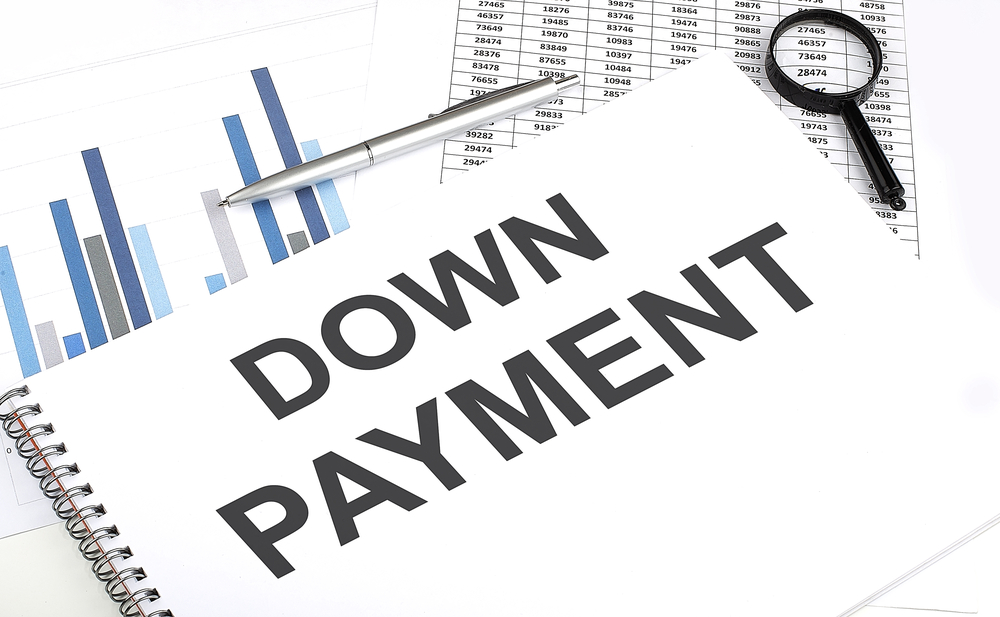FHA Loan Requirements PA: Mistakes to Avoid
If you’re thinking about buying a home in Pennsylvania but are worried that you may be unable to secure a conventional mortgage, an FHA loan may be just what you need to land your dream property.
Since buying a home is one of the biggest decisions you will ever make, it’s important to do your due diligence and research all of the financing options available to see which one is the best fit for your unique circumstances.
Keep reading to learn more about what an FHA loan is, the benefits of FHA loans, FHA loan requirements for PA homeowners, common FHA loan mistakes to avoid, and first-time homebuyer grants in PA that can help you move into your new home even faster.
What is an FHA loan?
An FHA loan is a mortgage insured by the Federal Housing Administration, an agency within the U.S. Department of Housing and Urban Development. Very simply, FHA loans are designed to make homeownership more accessible, especially for folks who may face challenges when it comes to qualifying for conventional mortgages.
Whether you’re a first-time homebuyer, have limited savings for a down payment, or wish your credit history was better, FHA loans can be a good option for buying a home in Pennsylvania.
What are the benefits of an FHA loan?
In 2020, the FHA signed off on more than 1.3 home mortgages, 83.1% of them for first-time homebuyers. FHA loans are popular because homes are expensive and this financial vehicle makes homeownership easier to achieve for the average American.
With that in mind, let’s take a look at some of the key benefits that come with securing an FHA loan on your path to homeownership.
1. Low down payment
FHA loans enable Pennsylvania homebuyers to close on a home with a relatively low down payment. While conventional mortgages might require buyers to put down 10% or even 20%, you can use an FHA loan to buy a house by putting just 3.5% down. In other words, FHA loans make it much easier to save for a down payment.

Need help cobbling together a down payment? You may want to check out down payment assistance programs available through the Pennsylvania Housing Finance Agency (PHFA).
2. Flexible credit score requirements
To qualify for a conventional mortgage, homeowners typically need a credit score of 620 or higher. FHA loans are more lenient when it comes to credit scores; you can secure a house for 3.5% down if your credit score is at least 580.
Is your score lower than that? You’re not entirely out of luck. Borrowers can still secure FHA loans with credit scores between 500 and 579. They just require putting 10% down.
3. Higher debt-to-income ratios
FHA loans typically allow for more flexibility when it comes to debt-to-income (DTI) ratios — or the percentage of a borrower’s gross monthly income that goes toward paying debts. In most cases, conventional mortgages have stricter DTI requirements. FHA loans are designed to accommodate borrowers with higher levels of existing debt, which makes homeownership easier to achieve.
4. Government-backed mortgages
Since FHA loans are insured by the government, lenders take on less risk when they agree to finance this type of mortgage. As a result, lenders are more likely to sign off on loans to borrowers who might not qualify for conventional financing.
FHA loan requirements PA: What you need to know
While FHA loans are easier to secure than conventional loans, borrowers will still have to meet specific requirements to qualify.
Such requirements include:
A credit score of at least 580 if you’re looking to only put down 3.5%.
If your score is lower than 580, you can still qualify for an FHA loan. You may just have to put down a larger down payment upfront. Alternatively, if you’re planning on buying a house in Pennsylvania but can afford to wait a bit, you can take proactive steps to improve your credit score, get it over 580, and qualify for the 3.5% option.
Enough cash to cover at least 3.5% of the house’s price.
These funds can come from your own savings, gifts from family members or friends, or even a state or local down payment assistance program.
A debt-to-income ratio of 57% or less.
While FHA loans allow for higher DTI ratios than conventional loans, you will still need to demonstrate your ability to afford mortgage payments each month. In some instances, lenders may make exceptions due to each borrower’s unique circumstances. If you’re worried that your DTI ratio is too high, you can either start looking for more affordable properties or try to earn more income by taking on a second job or starting a side hustle.
Proof of employment and income.
Borrowers need to be able to demonstrate that they have a steady employment history and a reliable source of income. To do this, lenders will ask for all sorts of documentation, including pay stubs, W-2 forms, tax returns, and bank statements. Using these documents, lenders assess the borrower’s ability to repay.
Mortgage insurance premiums (MIP).
FHA loans require both an upfront mortgage insurance premium paid at closing and an annual mortgage insurance premium paid over the life of the loan. Before signing any contracts, check with your lender to determine how you may be able to stop paying these kinds of premiums (e.g., buying refinancing into a conventional loan once you’ve reached 20% equity down the line).
FHA loans are available to U.S. citizens, lawful permanent residents, and eligible non-citizens, and they can only be used to buy a primary residence.
FHA loans: Mistakes to avoid
While FHA loans can accelerate your journey to homeownership in Pennsylvania, this method of home financing is not without its challenges. As you move closer to landing your first dream home, keep these pitfalls in mind to keep the process humming along.
Neglecting your credit score
While FHA loans may be more flexible than conventional loans, a low credit score can still affect your eligibility and the terms of the loan (e.g., down payments). By checking your credit score early in the process and taking proactive steps to improve it, you can ensure you have a solid score by the time you’re ready to secure an FHA mortgage.

Forgetting to budget for MIP
MIP is a mandatory cost for FHA loans, and not accounting for it can lead to financial strain. Avoid headaches down the line by factoring MIP into your budget and understanding how it affects your overall housing costs. Talk to your lender to make sure you understand the specific MIP requirements for the type of FHA loan you choose — and how you might be able to stop paying MIP at some point in the future.
Ignoring your DTI ratio
You might have a great credit score and enough cash to cover a down payment. But if your DTI ratio is too high, you may not be able to qualify for an FHA loan. While FHA loans may allow higher ratios than conventional loans, a high DTI can still impact loan approval. That being the case, you’re best off calculating your DTI ratio early in the process. If it’s too high, work on reducing debt (e.g., credit card debt) or increasing your income to improve your financial profile.
Skipping the pre-approval process
We get it: As someone who’s about to buy a house in Pennsylvania, you’re chomping at the bit. But don’t let your eagerness get the better of you. Without going through the mortgage pre-approval process, you may waste time looking at homes that are outside your budget or miss out on an opportunity because your loan doesn’t come through on time.
There’s an easy fix: Secure mortgage pre-approval for an FHA loan before starting your home search. This provides a clear understanding of your budget and strengthens your position as a buyer because sellers know you’re serious.
Underestimating closing costs
If you overlook the impact of closing costs, you might be caught off guard when you’re ready to finally move into your new home and sign the documentation. Closing costs for an FHA loan can include appraisal fees, credit report fees, title search fees, and other expenditures. Avoid headaches down the line by obtaining a detailed estimate of closing costs from your lender early in the process. Budget for these costs ahead of time to ensure you have the funds you need to close on schedule.
First-time homebuyer grants PA
Need a little extra help when it comes to buying your Pennsylvania dream home? There are several first-time homebuyer grants PA residents can take advantage of courtesy of the PFHA. Some of these grants include:
- The Keystone Forgivable in Ten Years Loan Program (K-FIT), which enables you to borrow up to 5% of the home’s market or appraised value, whichever is less. If you stay put, the state forgives 10% of the loan each year. If you move, you’ll have to pay 90% of what you borrowed. To qualify for this grant, you need a credit score of at least 660 and less than $50,000 in assets.
- The Keystone Advantage Assistance Loan Program, which provides a zero-interest second mortgage that you’ll have to repay over a decade. Under this program, you can borrow up to 4% of your home’s value, not to exceed $6,000.
- The HOMEstead Down Payment and Closing Cost Assistance Loan, which enables you to borrow up to $10,000 with no interest. Like the K-FIT program, the state forgives HOMEstead loans at a clip of 20% each year; if you stay in your home for five years, you won’t have to repay a penny.
Ready to buy your first home in Pennsylvania?
Buying a home for the first time can be an intimidating experience — so much so that it might even seem entirely out of reach.
Thanks to financial vehicles like FHA loans and first-time homebuyer grants, however, PA residents can enter the process with more confidence.
The journey to homeownership is complex and filled with surprises. To ensure the best results, you shouldn’t embark on that journey on your own.
When you’re ready to learn more about FHA loan requirements for PA homebuyers, reach out to an expert who can walk you through the process and tell you exactly what to expect.
Claim your free consultation today.
Disclaimer:
The content provided on this website is offered for educational purposes only. While we endeavor to provide accurate and up-to-date information, we make no representations or warranties of any kind, express or implied, about the completeness, accuracy, reliability, suitability, or availability of the content for any purpose. Visitors are advised to consult with qualified experts before making any financial decisions or taking any actions based on the information provided on this website.








